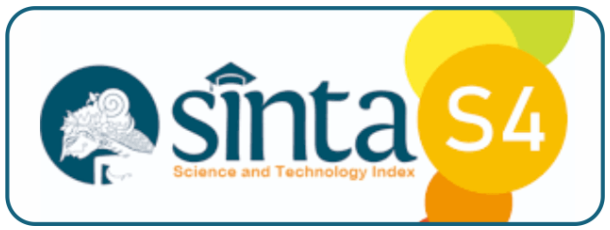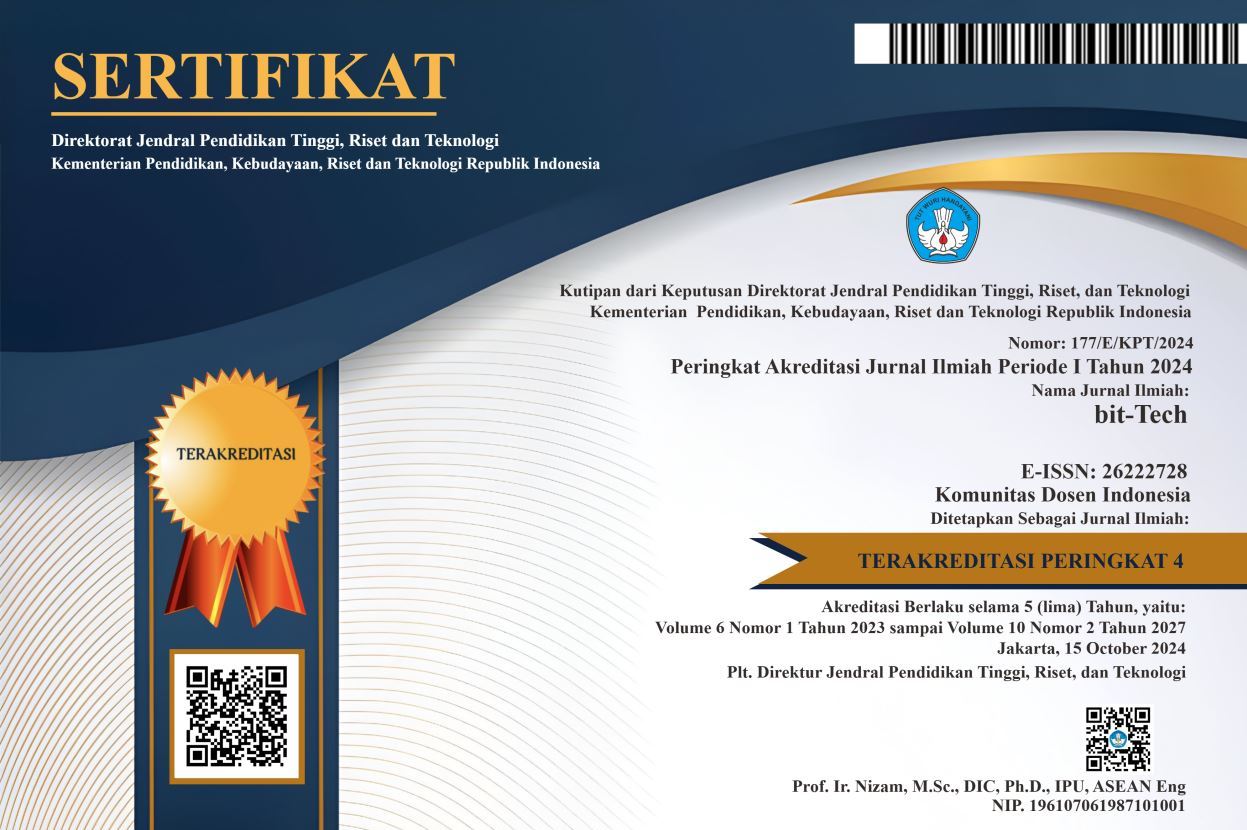Development of Educational Games as a Learning Arithmetic Operations with The Sprint Design Method
DOI:
https://doi.org/10.32877/bt.v7i1.1522
Keywords:
Arithmetic Operations, Development, Educational Game , Math, Sprint Design
Abstract
The development of information and communication technology (ICT) has had a significant impact on various aspects of life, including education. The use of ICT-based learning media can make the learning process more engaging, effective, and efficient. One trending form of learning media is educational games. Educational games combine educational content with computer game elements to create an enjoyable and engaging learning experience. The main advantage of educational games is their ability to illustrate real-world problems and encourage players to actively seek information while improving their skills and understanding. This study aims to develop Android-based learning media in the form of educational games using the Sprint Design methodology. This method includes five phases: understanding, diverging, deciding, prototyping, and validating. The understanding phase involves curriculum analysis and user needs, while the diverging phase produces strategies and design sketches. The deciding phase selects the best ideas, the prototyping phase builds the initial model, and the validating phase includes testing by content and media experts. The results indicate that the educational game is effective in increasing students' interest and understanding of mathematics. Trials showed high validation scores from content and media experts, as well as positive feedback from students. The game is deemed feasible as a learning medium and can enhance educational quality with a user-friendly interface. Ongoing and innovative development of educational games is necessary to improve education quality in Indonesia.
Downloads
References
B. K. Haba and A. C. Talakua, “Perancangan Game Edukasi Sebagai Media Pembelajaran Klasifikasi Tumbuhan Pada Sekolah Menengah Pertama,” Proceeding Sustainable Agricultural Technology Innovation (SATI), vol. 2, no. 1, pp. 128–143, 2023.
A. Arsyad, “Media Pembelajaran,” Jakarta: Raja Grafindo Persada, vol. 258, 2014.
P. Angwarmasse and W. Wahyudi, “Pengembangan game edukasi labirin matematika untuk meningkatkan kemampuan pemecahan masalah siswa kelas VI sekolah dasar,” Jurnal EDUCATIO: Jurnal Pendidikan Indonesia, vol. 7, no. 1, pp. 46–52, 2021.
Y. M. D. Putra, “PENGEMBANGAN GAME EDUKASI ‘SUPER MATHRIO BROS’ BERBASIS UNITY SEBAGAI MEDIA PEMBELAJARAN BERHITUNG,” Jurnal Pendidikan Teknologi Informasi (JUKANTI), vol. 5, no. 2, pp. 261–269, 2022.
A. Vega Vitianingsih, “Game edukasi sebagai media pembelajaran pendidikan anak usia dini,” Inform, vol. 1, no. 1, pp. 25–32, 2016.
L. D. Pratama, W. Lestari, and A. Bahauddin, “Game Edukasi: Apakah membuat belajar lebih menarik?,” At-Ta’lim: Jurnal Pendidikan, vol. 5, no. 1, pp. 39–50, 2019.
R. P. Saputri and M. Fransisca, “Analisis Kebutuhan Siswa Terhadap Media Pembelajaran Berbasis Android Mata Pelajaran Simulasi Digital,” in Prosiding Seminar Nasional Terapan Riset Inovatif (SENTRINOV), 2020, pp. 902–909.
M. H. Alfirdaus, M. Tahir, A. Kusumaningsih, M. Arif, and E. Y. Wijaya, “Penerapan Sprint Design dalam Pengembangan Game Edukasi sebagai Media Belajar Kosakata Bahasa Arab,” Jurnal Eksplora Informatika, vol. 13, no. 1, pp. 124–135, 2023.
F. D. Hermawati, E. Y. Wijaya, and N. Aini, “Pengembangan Game Edukasi Bahasa Inggris untuk Membantu Kemampuan Listening pada Siswa Kelas XII SMKN 3 Bangkalan,” Journal of Education and Informatics Research, vol. 3, no. 1, 2022.
S. H. Muhammad, “ANALISA USER INTERFACE UNTUK MENINGKATKAN USER EXPERIENCE MENGGUNAKAN USABILITY TESTING PADA APLIKASI ANDROID PEMESANAN TEST DRIVE MOBIL,” Fakultas Teknik Universitas Krisnadwipayana, 2019.
S. Sugiyono, “Metode penelitian kuantitatif dan kualitatif dan R&D,” Alfabeta Bandung, pp. 170–182, 2010.
W. F. Anggraini, T. Susanto, and I. Ahmad, “Sistem Informasi Pemasaran Hasil Kelompok Wanita Tani Desa Sungai Langka Menggunakan Metode Design Sprint,” Jurnal Teknologi Dan Sistem Informasi, vol. 3, no. 1, pp. 34–40, 2022.
I. Binanto, “Tinjauan metode pengembangan perangkat lunak multimedia yang sesuai untuk mahasiswa tugas akhir,” in Seminar Nasional Rekayasa Komputer dan Aplikasinya, 2015, pp. 148–155.
A. Krisnoanto, A. H. Brata, and M. T. Ananta, “Penerapan Metode User Centered Design Pada Aplikasi E-Learning Berbasis Android (Studi Kasus: SMAN 3 Sidoarjo),” Jurnal Pengembangan Teknologi Informasi dan Ilmu Komputer, vol. 2, no. 12, pp. 6495–6501, 2018.
J. Santoso, “Usability user interface dan user experience media pembelajaran kamus Kolok Bengkala Berbasis Android,” Jurnal Sistem dan Informatika (JSI), vol. 12, no. 2, pp. 174–181, 2018.
P. Sukmasetya, A. Setiawan, and E. R. Arumi, “Penggunaan Usability Testing Sebagai Metode Evaluasi Website Krs Online Pada Perguruan Tinggi,” JST (Jurnal Sains Dan Teknologi), vol. 9, no. 1, pp. 58–67, 2020.
Downloads
Published
How to Cite
Issue
Section
License
Copyright (c) 2024 bit-Tech

This work is licensed under a Creative Commons Attribution-ShareAlike 4.0 International License.
I hereby assign and transfer to bit-Tech all exclusive copyright ownership rights to the above work. This includes, but is not limited to, the right to publish, republish, downgrade, distribute, transmit, sell, or use the work and other related materials worldwide, in whole, or in part, in all languages, in electronic, printed, or any other form of media, now known or hereafter developed and reserves the right to permit or license a third party to do any of the above. I understand that this exclusive right will belong to bit-Tech from the date the article is accepted for publication. I also understand that bit-Tech, as the copyright owner, has sole authority to license and permit reproduction of the article. I understand that, except for copyright, any other proprietary rights associated with the work (e.g. patents or other rights to any process or procedure) must be retained by the author. In addition, I understand that bit-Tech permits authors to use their papers in any way permitted by the applied Creative Commons license.


 DOI :
DOI :
 Abstract views: 105
/
Abstract views: 105
/  PDF downloads: 107
PDF downloads: 107











